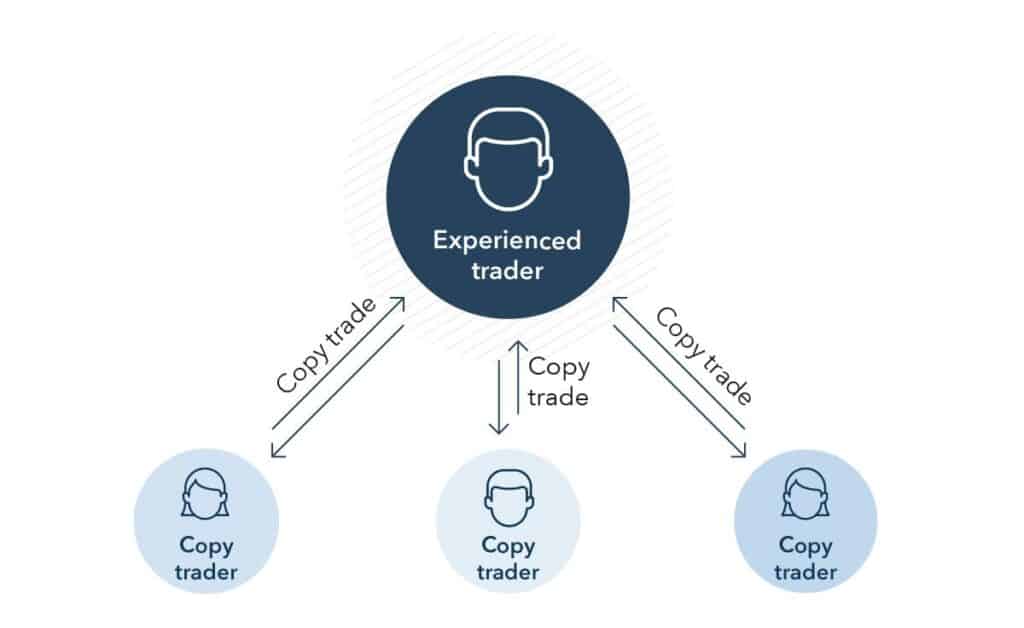Copy trading is the simple enough idea that some people are better at trading than others. So, those less good should follow – copy – the trading of those better. Put like that it’s both a simple enough idea and one that’s obviously sensible. There are problems though when we explore the details.
Newspaper Tip Columns
The very heart of the thought is just the same as a newspaper tipping column. Say, Midas in the Mail. People who know, more than we do, spend more time thinking about it than we do, find gems to invest in that we don’t. They tell us, we invest – great. So many people follow such columns that merely being mentioned often proves the point – the stock goes up just under the weight of buying from being mentioned. This is what went wrong with the City Slickers column at The Mirror. The guys who wrote the column were buying shares, tipping them, watching them rise as a result of being tipped and then selling. That’s known as a pump and dump and is both illegal (it’s market manipulation) and immoral from the newspaper’s point of view. This becomes a potential problem for us later.
Social Trading
The next step along this path is social trading. This is where the newspaper has been replaced by social media. R/wallstreetbets is an obvious example, although there are plenty of twitter accounts and so on. Again, we’ve dividing lines between legal and illegal here. R/wallstreet noted that GameStop was heavily shorted and that a short squeeze was possible. That then people created a short squeeze as a result is entirely legal. If someone had coordinated it quite possibly not legal. The Atlas Trading games on Discord and Twitter were clearly ramping and pumps and dumps.

All of these so far share one point – legal or illegal. That there’s always a choice about a particular trade. We are presented with information, we chew over it and decide to act or not. This in itself has a potential problem if we’re talking about a fast-moving market or where we’re trading on thin margins. There’s absolutely no point in writing a newspaper column about a 5 pip move in the £/$ rate because that will have happened before the piece can even be printed to the web, let alone read and considered. Similarly pair crosses in crypto and the like might be 10 minute opportunities, not long enough to distribute information.
Copy Trading
So, this brings us to the next development, copy trading. This is where we link our trading to another trader – one of our choice of course – and we automatically follow their trades. This does mean we’ve got to be signed up to a site that offers the service of course but there are many of those. It’s also possible to do this across different market – stocks, crypto, FX and so on.

The advantage is obvious, as with the newspaper columns, tip sheets and social trading. We get to pick up tips from those better at all of this than we are. Or, of course, if we think we’re better then we can build our own following.
OK, if this is obviously so great then what are the problems? Well, the first one is, well, who is actually better? It’s one of those things about markets that anyone can beat them for a bit but very few can do so over time. Copy trading platforms do indeed show past performance of traders so we can see who has one how well in the past. It’s important to sort through those whose portfolio performance depends upon a couple of hits – the one right decision can cover an awful lot of bad ones – and those who are doing better because each individual decision is just that percentage point or two better. It’s the second who are “better at trading” because the art of trading isn’t to go for the one big hit, it’s to be doing better with each individual decision. The big hit hunt is better described as speculation. Nothing wrong with either of them, they’re just not the same thing.
Be Careful
We do though need to be careful. In a thin enough market – junior stocks say, thinly traded FX or crypto pairs – then the very fact that a following is trading can mean that those who get in early benefit, by definition. That is, there’s always the possibility of the City Slickers problem. The position makes money simply because many people are in it – which is nice, but of course that also means that the position loses money again as all exit it. Only those in the very first wave profit. If this is done deliberately then that takes into that Atlas Trading world which is somewhere we really don’t want to be. The end here is that copy trading is a perfectly respectable and useful technique. At heart it’s no different from following a newspaper tipster – someone else is doing all the hard work of analysis. But just the same as following a newspaper column the difficult choice is at the start – well, which of the varied tipsters do we believe? So, whose trades do we copy?